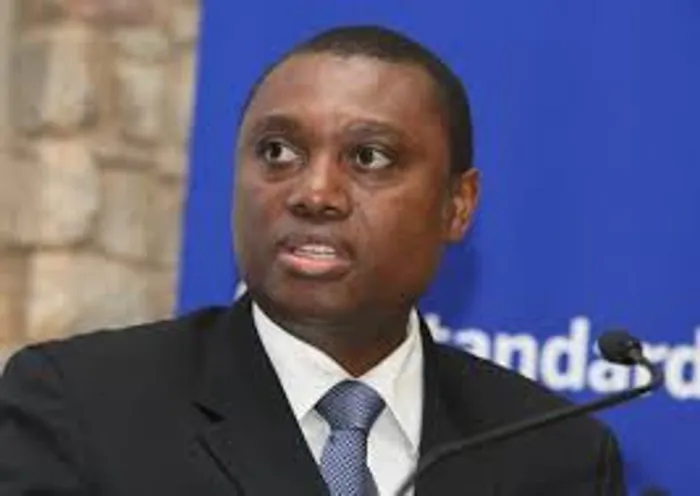Standard Bank executives' remuneration increases and decreases: A detailed report
EXECUTIVE LEADERSHIP

Sim Tshabalala, Standard Bank Group CEO
Image: Supplied
Standard Bank Group CEO Sim Tshabalala’s single figure remuneration increased 7.1% to R89.22 million in the year to December 31, while that of his former deputy CEO Kenny Fihla, who this month announced his resignation to become CEO of Absa, fell by 3.7% to R67.29m.
According to the remuneration report of Africa’s biggest bank by assets, released on Friday, Fihla’s cost-to-company was increased to R9.5m from R8.7m on September 1, 2024 following his appointment as deputy CEO of the group. His 2024 short-term incentive award reflected both his role as Corporate and Investment Banking CEO until August 2024, and his role as deputy CEO of the group from September 2024.
Tshabalala’s total single figure was 8.3% short of the maximum payable under the performance parameters of the group’s remuneration policy for his position of R97.32m, which the remuneration report states “only transpires if all targets are exceeded.” However, his performance was far above the “on-target” figure of R60.99m.
Bill Blackie, CEO of Standard Bank’s Business and Commercial Banking (BCB) division, also saw his total remuneration decline, by 5.1% to R43.70m.
Arno Daehnke, chief finance and value management officer at the bank, benefited from a 0.4% increase in his remuneration to R68.36m.
Funeka Mantjane, CEO of the Personal and Private Banking division, saw her remuneration increase by 10.2% to R65.54m.
Insurance and Asset Management CEO at the group, Yuresh Maharaj’s remuneration increased by 66.5% to R41.72m.
Luvuyo Masinda, CEO for Commercial and Investment Banking at Standard, received R12.64m based on his performance since his appointment in September 2024.
Chief Operating Officer Margaret Nienaber saw her remuneration increase 4.6% to R62.54m. The factors that were rated for her performance provide a good indicator of what might be expected of a banking executive.
They include an increase in headline earnings - in the bank’s case it was up 4% to R44.5m; return on equity; technology spend contained to R22.4bn from R21.6bn in 2023; “Priority 1 incidents: 0 (2023: 1)”; 29 successive months of month-end technology stability, with independent indicators improved stability performance relative to South African peers; physical footprint rationalisation (cumulative): 168 000 square metres; net reduction in carbon emissions of 8% year-on-year across the group; and Brand Finance’s most valuable banking brand in Africa and South Africa for the third year in a row.
Tshabalala’s factors that impacted his remuneration include headline earnings growth, a small decline in return on equity; 19.6 million active clients; employee net promoter score: +48 (2023: +48); cost-to-income ratio at 50.5% versus 51.4% in 2023; sound capital and liquidity positions, the group was rated as one of the world’s best employers and the best in Africa by Forbes World’s Best Employers, and the group was rated the best in Africa as one of Time World’s best companies and Newsweek’s world’s most trustworthy companies.
Following input by shareholders, a remuneration policy change during the year related to one of the metrics used to assess the long-term incentives (LTI) awards in the Performance Reward Plan (PRP). Although the PRP metrics and weightings remained unchanged, the return on equity metric was amended to a three-year average to reflect performance more fully over the three-year period.
Remuneration disclosures were also enhanced by expanding individual executive director and prescribed officer disclosures, to demonstrate a clearer link to individual remuneration outcomes, and a more transparent disclosure on the short-term incentive (STI) was awarded.
Total senior management remuneration increased 2% to R2.01bn from R1.97bn, while total remuneration for “other material risk takers” increased 1% to R1.05bn from R1.04bn..
BUSINESS REPORT